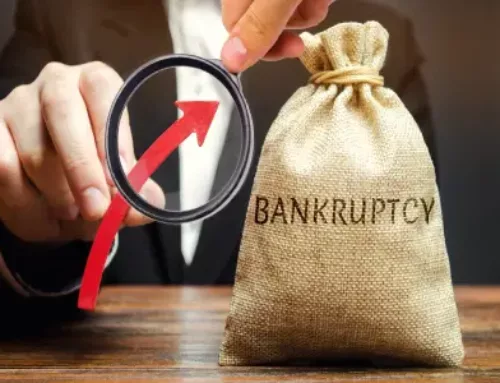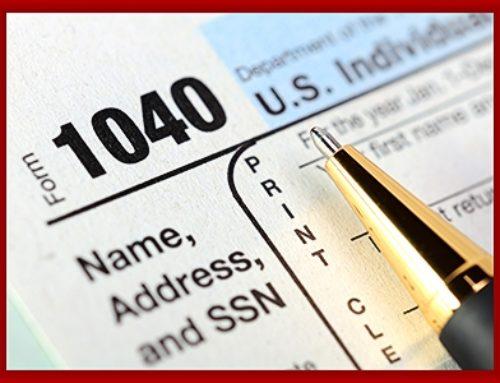Fix Your Credit Score!
If you are planning to file for bankruptcy but have doubts and questions in your mind, such as “How soon will my credit score improve after bankruptcy?” then this article is for you. The entire process of bankruptcy is complicated. Contacting an experienced bankruptcy attorney is a must. In this article, we will cover the following:
- Understanding Bankruptcy and Credit Scores
- The Waiting Period after Bankruptcy
- How to Repair Your Credit After Bankruptcy
- Credit Mistakes You Should Avoid
If you are looking for a reliable bankruptcy firm in Arizona that can answer all your queries, Phoenix Fresh Start Bankruptcy Attorneys can help you. Hiring a bankruptcy attorney is not required by bankruptcy laws but it will greatly help you navigate your case. Have a stress-free financial analysis today!
Understanding Bankruptcy and Credit Scores
Bankruptcy is a legal process that allows individuals or businesses to eliminate or repay their debts under the protection of the bankruptcy court. There are two types of bankruptcies that individuals can file for in Phoenix, Arizona: Chapter 7 and Chapter 13.
When someone files for bankruptcy, it can have an impact on their credit score. Bankruptcy is considered a major negative event, and it can stay on a credit report for up to 10 years. The severity of the impact depends on the individual’s credit history before the bankruptcy, as well as the type of bankruptcy filed.
The Effects of Chapter 7 Bankruptcy on Your Credit Score
Chapter 7 bankruptcy can have a big impact on your credit score. A Chapter 7 bankruptcy will stay on your credit report for up to 10 years, and during that time, it can make it difficult to get credit, secure loans, or even find housing or employment.
When you file for Chapter 7 bankruptcy, your credit score will likely take a significant hit. The exact amount your credit score will drop will depend on a variety of factors, including your credit history and score prior to filing, the amount of debt you discharge, and the accuracy of the information on your credit report.
While a Chapter 7 bankruptcy can have a negative impact on your credit score, it doesn’t have to be the end of your financial life. By taking steps to rebuild your credit and being diligent in your financial habits, you can regain your financial footing and achieve financial success in the future.
The Effects of Chapter 13 Bankruptcy on Your Credit Score
Chapter 13 bankruptcy can also have a significant impact on your credit score, although the effects may be less severe than those of Chapter 7 bankruptcy. Like Chapter 7, Chapter 13 bankruptcy will stay on your credit report for up to 10 years.
However, one key difference between Chapter 7 and Chapter 13 bankruptcy is that Chapter 13 involves a repayment plan, which can help minimize the impact on your credit score. You will still likely experience a credit score drop after filing for Chapter 13, but the amount may be less severe than if you filed for Chapter 7.
By making timely payments on your Chapter 13 repayment plan and working to rebuild your credit over time, you can begin to improve your credit score. This may involve getting a secured credit card or loan, making timely payments, and keeping balances low. Also, regularly monitoring your credit report and disputing any errors can help ensure that your credit score is accurate and up to date.
The Waiting Period after Bankruptcy
After filing for bankruptcy, there is a waiting period before you can apply for certain types of credit or loans. The length of the waiting period will depend on the type of bankruptcy you filed and the lender’s specific requirements.
Chapter 7 Bankruptcy Waiting Period
For Chapter 7 bankruptcy, the waiting period is typically two years before you can apply for a conventional home loan, and four years before you can apply for a government-backed home loan such as an FHA loan. For other types of loans, such as personal loans or credit cards, the waiting period may be shorter.
Chapter 13 Bankruptcy Waiting Period
For Chapter 13 bankruptcy, the waiting period may be shorter than for Chapter 7. You may be able to apply for a conventional home loan as soon as one year after filing for Chapter 13 bankruptcy, and two years after filing for a government-backed home loan.
How to Repair Your Credit After Bankruptcy
Repairing your credit after bankruptcy can be a challenging process, but it is possible with time and effort. Here are some steps you can take to rebuild your credit after bankruptcy:
- Check your credit report: After bankruptcy, it’s important to regularly check your credit report to ensure that all information is accurate and up to date. If you find errors on your credit report, you can dispute them with the credit bureau to have them corrected.
- Pay bills on time: One of the most important steps you can take to rebuild your credit is to make timely payments on any existing debts. This will demonstrate to lenders that you are responsible with your finances and can be trusted to make payments on time.
- Obtain a secured credit card: A secured credit card is a type of credit card that requires a security deposit. Using a secured credit card responsibly and making timely payments can help build your credit score over time.
- Keep balances low: It’s important to keep your credit card balances low, ideally at less than 30% of your available credit limit. This demonstrates to lenders that you are responsible with your credit and can manage it effectively.
- Consider a credit builder loan: A credit builder loan is a type of loan that is designed to help you build credit. The loan amount is typically small and is held in a savings account while you make payments. Once the loan is paid off, you receive the funds and your credit score may improve.
- Be patient: Rebuilding your credit after bankruptcy takes time, so it’s important to be patient and diligent in your financial habits. Over time, as you demonstrate responsible financial behavior, your credit score will begin to improve.
If you’re ready to take control of your financial future and rebuild your credit after bankruptcy, it’s time to take action. Contact Phoenix Fresh Start Bankruptcy Attorneys today to learn how we can help you get back on track and achieve your financial goals.
Credit Mistakes You Should Avoid
When it comes to credit, there are certain mistakes you should avoid in order to maintain a healthy credit score and financial well-being. Here are some credit mistakes to avoid:
- Late payments: Late payments can have a significant negative impact on your credit score, so it’s important to make all payments on time.
- Maxing out credit cards: Using too much of your available credit can also negatively impact your credit score. It’s best to keep balances low and pay off credit cards in full each month.
- Closing credit accounts: Closing credit accounts can actually hurt your credit score, as it reduces your available credit and can increase your credit utilization ratio.
- Applying for too much credit: Applying for too many credit accounts can also negatively impact your credit score, as it can be seen as a sign of financial instability.
- Ignoring credit reports: It’s important to regularly check your credit report for errors or fraudulent activity. Ignoring your credit report can lead to missed opportunities to correct errors and protect your credit score.
- Co-signing for others: Co-signing for a loan or credit account can put your own credit score at risk if the other person doesn’t make payments on time.
Our experienced team of attorneys can guide you through the process of bankruptcy and provide you with the tools and resources you need to get back on track. Contact us today and take the first step towards financial freedom.
Call our Phoenix Bankruptcy Attorney Today!
After reading the article, you may now have the answer to your question on “How Soon Will My Credit Score Improve After Bankruptcy?” However, you cannot deny that you now have additional questions. That’s entirely normal. In situations like this, contacting an experienced bankruptcy attorney should be your first step.
The law firm of Phoenix Fresh Start Bankruptcy Attorneys is a reliable, experienced, and skilled bankruptcy attorney that you can definitely rely on. We’ve been practicing bankruptcy in Arizona for over 18 years. You can rest assured that by choosing us, your case will be in good hands. Have a stress-free financial analysis today!






